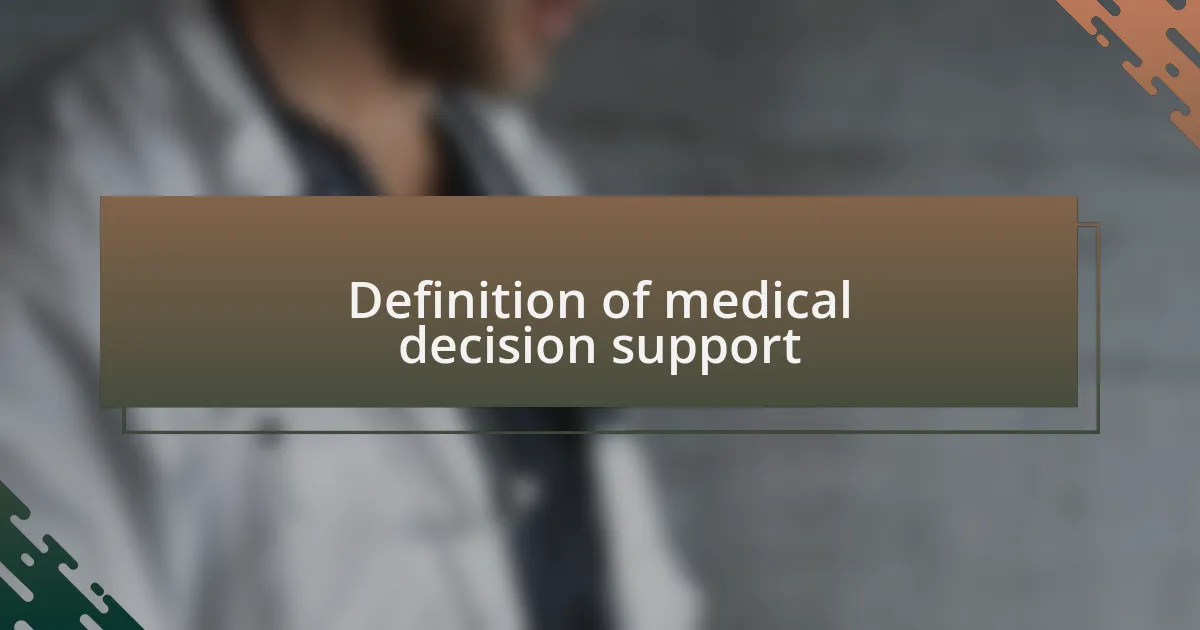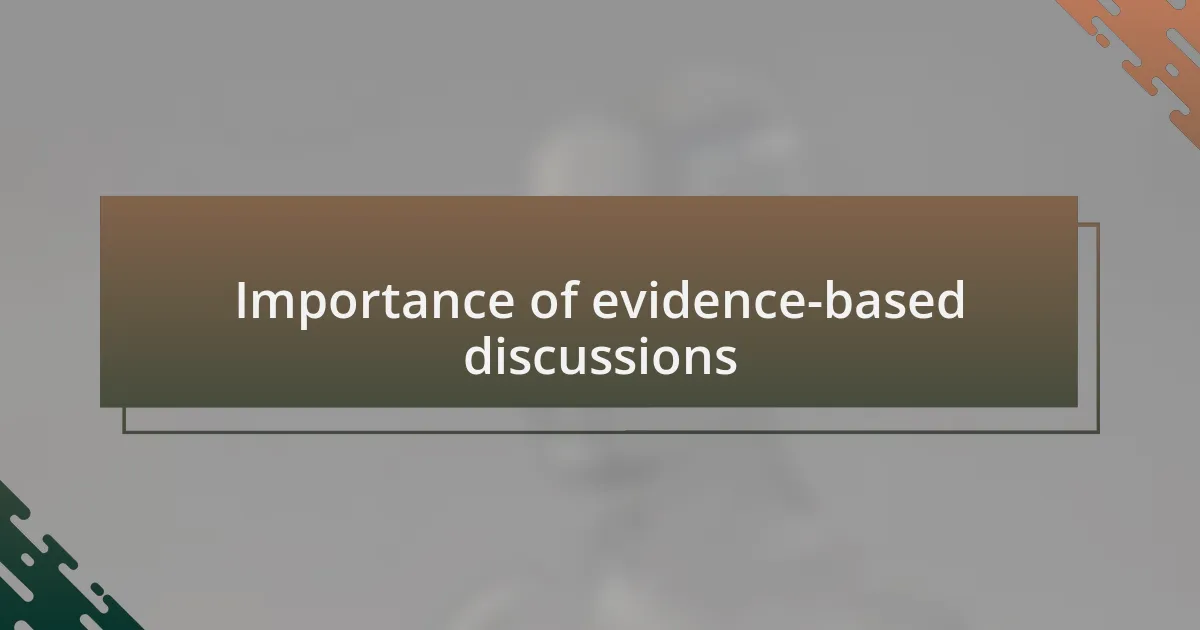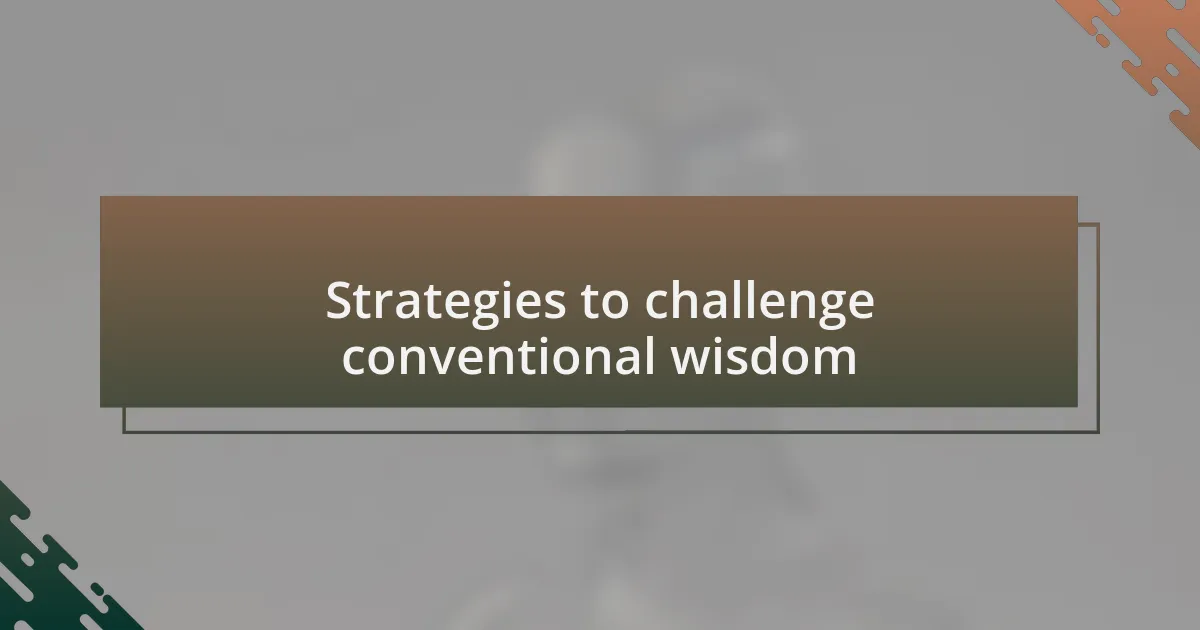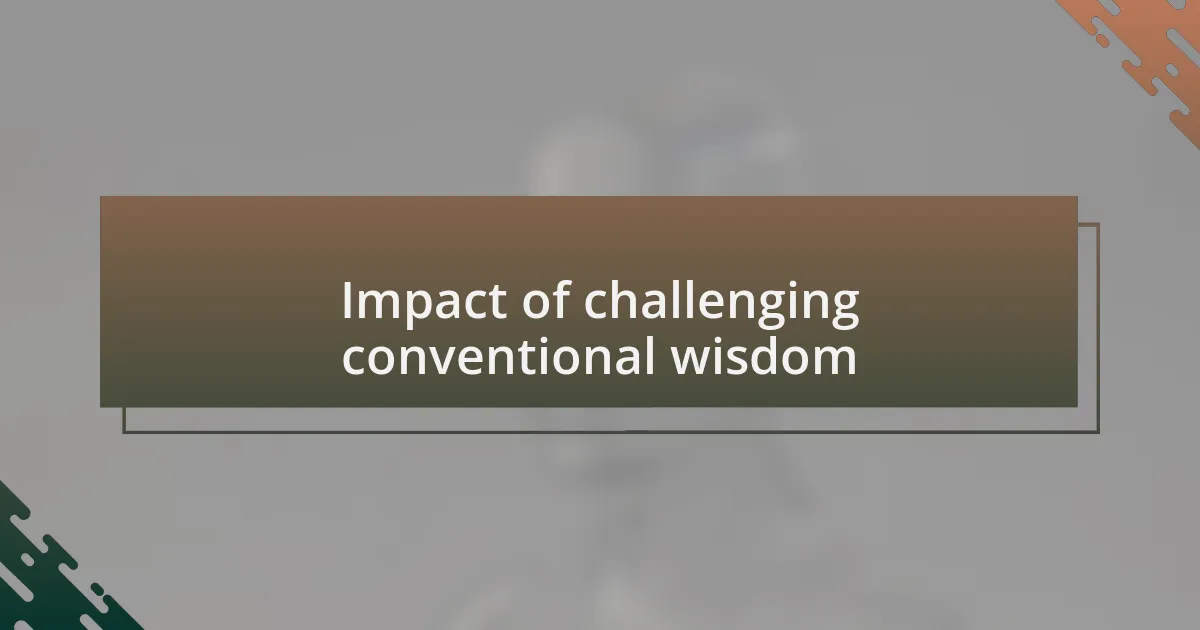Key takeaways:
- Medical decision support systems enhance clinical decision-making by analyzing patient data and providing evidence-based recommendations, especially in complex cases.
- Engaging in evidence-based discussions fosters collaboration, increases confidence among healthcare professionals, and leads to improved patient outcomes.
- Challenging conventional wisdom through interdisciplinary collaboration and a questioning culture can lead to innovative solutions and significant changes in medical practices.
- Shifts in treatment protocols based on new research can transform patient care and promote a global dialogue on evolving medical standards.

Definition of medical decision support
Medical decision support refers to tools and systems designed to aid healthcare professionals in making informed clinical decisions. In my experience, these systems analyze a patient’s data, medical history, and current research to provide evidence-based recommendations. Have you ever faced a complex case that left you feeling uncertain? This is where decision support shines, offering clarity in moments of uncertainty.
I recall a challenging situation where I had to decide on a treatment plan for a patient with multiple comorbidities. Utilizing a medical decision support system not only streamlined the process but also highlighted potential interactions between medications that I might have overlooked. It’s fascinating how technology can serve as a safety net, enhancing our abilities as decision-makers.
Essentially, medical decision support acts as a reliable partner in the healthcare decision-making process. It empowers clinicians by integrating the latest evidence with real-time patient information, making the complex landscape of healthcare a bit more navigable. Have you thought about how these systems could improve patient outcomes in your practice?

Importance of evidence-based discussions
Evidence-based discussions are crucial in healthcare as they ground our clinical decisions in the most reliable information available. I’ve often found that relying solely on experience or intuition can lead to mistakes. Reflecting on a time when I opted for a treatment without consulting the latest studies, I realized how easy it is to overlook new evidence that could change our approach.
When I engage in evidence-based discussions with colleagues, I notice a shift in confidence. The conversation becomes less about opinions and more about what actually works. For instance, during a case review, I presented recent clinical trial data that challenged our preconceived notions about a treatment’s efficacy. Witnessing the team reevaluate their approaches was not only enlightening but also invigorating, reinforcing the value of dialogue rooted in strong evidence.
Moreover, these discussions foster a collaborative environment where ideas can be openly exchanged and scrutinized. I remember a spirited debate about implementing a new protocol based on emerging evidence. The ensuing dialogue led to innovative solutions that optimized our patient care. In my experience, when we prioritize evidence, we don’t just elevate our practice; we also enhance our patients’ trust in our decisions. What could be more rewarding than knowing we’ve done everything we can to provide the best possible care?

Strategies to challenge conventional wisdom
Challenging conventional wisdom starts with cultivating a mindset open to scrutiny. For example, I distinctly remember a meeting where a long-standing protocol was put under the microscope. Instead of defending the status quo, team members, myself included, embraced curiosity. What if we truly examined the data? This approach revealed glaring inconsistencies, urging us to rethink our methods.
Another effective strategy is to embrace interdisciplinary collaboration. Engaging with professionals outside our immediate field can provide fresh perspectives. I once collaborated with a data scientist who had a knack for interpreting outcomes differently than I would have in my medical bubble. By analyzing the same dataset through various lenses, we uncovered insights that reshaped our approach to patient treatment. Wouldn’t it be amazing to explore innovative solutions from unexpected sources?
Finally, I believe that fostering a questioning culture is vital. Encouraging team members to ask “why” can unearth biases we might not consciously acknowledge. In one discussion, I invited my colleagues to challenge assumptions about a common diagnosis. Their probing questions not only ignited a rich conversation but also led to a complete overhaul of our diagnostic criteria. It left me wondering: how often do we miss opportunities for advancement simply because we’re too comfortable with existing beliefs?

Impact of challenging conventional wisdom
Challenging conventional wisdom can lead to groundbreaking changes in medical practices. I recall a time when a colleague proposed deviating from a well-established treatment guideline based solely on new research findings. At first, I felt apprehensive about the shift. However, as we delved deeper into the evidence, it became clear that the new approach not only improved patient outcomes but also sparked invigorating discussions among the staff. The questions that arose—could this really be the new standard?—highlighted how transformative such challenges can be.
Moreover, the impact of questioning norms doesn’t just affect treatment protocols; it reshapes our understanding of patient care. I once participated in a case review where a typical patient demographic was reevaluated. The insights shared by a nurse who worked closely with underserved populations were eye-opening. She pointed out how our assumptions about health risks often overlooked significant variables. I began to wonder: how many patients have we misdiagnosed simply because we adhered too rigidly to the conventional profile?
The ripple effects of challenging the norm often extend beyond the immediate setting. One time, after presenting an alternative viewpoint in a conference, I received unexpected feedback from across the globe. Many practitioners had faced similar doubts about their aged guidelines. This reinforced my belief that when we dare to question the status quo, we create a platform for collective evolution in the medical community. How powerful is that?